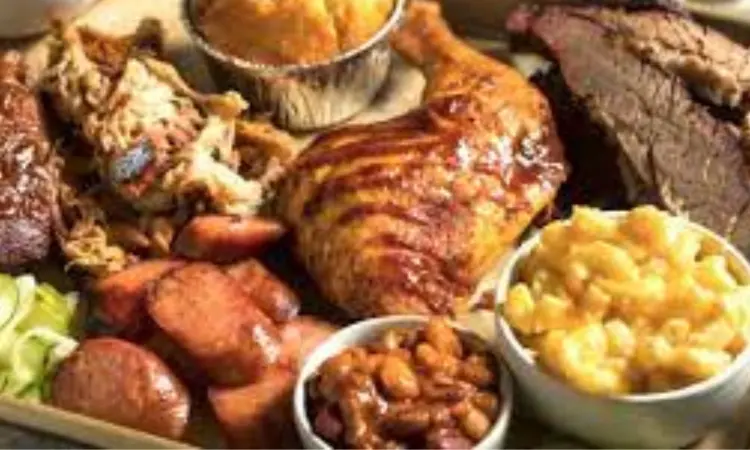- Home
- Medical news & Guidelines
- Anesthesiology
- Cardiology and CTVS
- Critical Care
- Dentistry
- Dermatology
- Diabetes and Endocrinology
- ENT
- Gastroenterology
- Medicine
- Nephrology
- Neurology
- Obstretics-Gynaecology
- Oncology
- Ophthalmology
- Orthopaedics
- Pediatrics-Neonatology
- Psychiatry
- Pulmonology
- Radiology
- Surgery
- Urology
- Laboratory Medicine
- Diet
- Nursing
- Paramedical
- Physiotherapy
- Health news
- Fact Check
- Bone Health Fact Check
- Brain Health Fact Check
- Cancer Related Fact Check
- Child Care Fact Check
- Dental and oral health fact check
- Diabetes and metabolic health fact check
- Diet and Nutrition Fact Check
- Eye and ENT Care Fact Check
- Fitness fact check
- Gut health fact check
- Heart health fact check
- Kidney health fact check
- Medical education fact check
- Men's health fact check
- Respiratory fact check
- Skin and hair care fact check
- Vaccine and Immunization fact check
- Women's health fact check
- AYUSH
- State News
- Andaman and Nicobar Islands
- Andhra Pradesh
- Arunachal Pradesh
- Assam
- Bihar
- Chandigarh
- Chattisgarh
- Dadra and Nagar Haveli
- Daman and Diu
- Delhi
- Goa
- Gujarat
- Haryana
- Himachal Pradesh
- Jammu & Kashmir
- Jharkhand
- Karnataka
- Kerala
- Ladakh
- Lakshadweep
- Madhya Pradesh
- Maharashtra
- Manipur
- Meghalaya
- Mizoram
- Nagaland
- Odisha
- Puducherry
- Punjab
- Rajasthan
- Sikkim
- Tamil Nadu
- Telangana
- Tripura
- Uttar Pradesh
- Uttrakhand
- West Bengal
- Medical Education
- Industry
Southern dietary pattern tied to increased risk of CKD progression

USA: A recent study has shown an association between Southern dietary patterns and increased risk of CKD (chronic kidney disease) progression; the association varies by APOL1 genotypes and requires confirmation in other cohorts.
The southern dietary pattern involves a high intake of added fats, fried food, processed meats, organ meats, and sugar-sweetened beverages
In their study published in Kidney Medicine, the investigators examined the association of five dietary patterns with CKD progression, incident CKD, and kidney failure in a large cohort of Black people. The analyses also inspected potential differences in the associations of dietary patterns with CKD outcomes by the presence of APOL1 high-risk genotypes.
The study found no dietary pattern was significantly linked with kidney failure, but a higher Southern dietary pattern correlated with higher odds of CKD progression.
"About 13% of African Americans have the APOL1 (apolipoprotein L1) high-risk genotypes. Only a minority of people with the APOL1 high-risk genotypes develop CKD, suggesting that a second factor is required for phenotypic expression of APOL1 high-risk variants," Titilayo O. Ilori, Titilayo O. Ilori, and colleagues wrote in their study.
According to the authors, no previous study has investigated whether the association of dietary patterns with CKD outcomes differs by the presence of APOL1 high-risk genotypes.
They noted that diet impacts innate immunity and promotes pro-or anti-inflammatory effects by adipocytes and immune cells. This metabolic inflammation may affect the progression and development of CKD. Also, diet shapes the gut microbiome, which may modulate interferon production in response to viral infection.
The prospective study included 5640 Black participants in the REGARDS (Reasons for Geographic and Racial Differences in Stroke).
Five dietary patterns derived from food frequency questionnaires were Convenience foods, Sweets and fats, Southern, Alcohol/Salads, and Plant-based.
The research team examined associations of dietary pattern quartiles with incident CKD (n=4188), kidney failure (n=5640) and CKD progression. They tested the statistical interaction between dietary patterns and APOL1 genotypes for CKD outcomes and explored stratified analyses by APOL1 genotypes.
The authors reported the following findings:
· Among 5,640 Black REGARDS participants mean age was 64 years; 35% were male, and 12.1% had high-risk APOL1 genotypes.
· Highest versus lowest quartiles (Q4 vs Q1) of Southern dietary pattern were associated with higher adjusted odds of CKD progression (OR 1.28) but not incident CKD (OR 0.92) or kidney failure (HR 1.48).
· No other dietary patterns showed notable associations with CKD.
· The authors found no statistically significant interactions between APOL1 genotypes and dietary patterns.
· Stratified analysis revealed no consistent associations across genotypes. However, Q3 & Q4 vs Q1 of Plant and Southern patterns were associated with lower odds of CKD progression among APOL1 high- but not low-risk genotypes.
"We found that Southern dietary pattern was linked with an increased risk of CKD progression," the researchers conclude. "Analyses stratified by APOL1 genotypes indicate that associations may differ by genetic background, but these findings need confirmation in other cohorts."
Reference:
Ilori, T. O., Brooks, M. S., Desai, P. N., Cheung, K. L., Judd, S. E., Crews, D. C., Cushman, M., Winkler, C. A., Shlipak, M. G., Kopp, J. B., Naik, R. P., Estrella, M. M., Gutiérrez, O. M., & Kramer, H. (2023). Dietary Patterns, Apolipoprotein L1 Risk Genotypes, and CKD Outcomes Among Black Adults in the Reasons for Geographic and Racial Differences in Stroke (REGARDS) Cohort Study. Kidney Medicine, 100621.https://doi.org/10.1016/j.xkme.2023.100621
Dr Kamal Kant Kohli-MBBS, DTCD- a chest specialist with more than 30 years of practice and a flair for writing clinical articles, Dr Kamal Kant Kohli joined Medical Dialogues as a Chief Editor of Medical News. Besides writing articles, as an editor, he proofreads and verifies all the medical content published on Medical Dialogues including those coming from journals, studies,medical conferences,guidelines etc. Email: drkohli@medicaldialogues.in. Contact no. 011-43720751


